Our Purpose
Enhance Your Life with Technology
ViXion Inc.
To expand life's choices,
We challenge ourselves to expand our ability to see.
Brand Statement
Light the World
Light Up Your World

- Philosophy behind our company name
- The "S" at the center of the English word "Vision," which means to see, has been replaced with an "x" that stands for bringing out people's potential and a "large X" that stands for living freely, and at the heart of our vision is the desire to support people's potential.
- Philosophy behind our logo
- This logo represents the 'step' that customers and ViXion take together, and the 'future' just beyond, illuminated by ViXion.
Brand Color
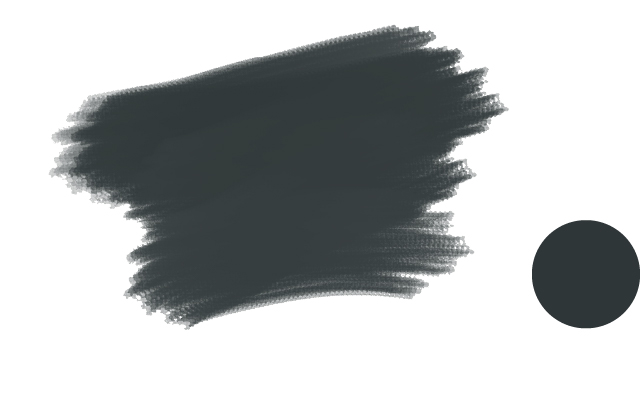
Based on our intention to be "close to patients," we have set two colors for the brand, based on the premise of black and white inversion.
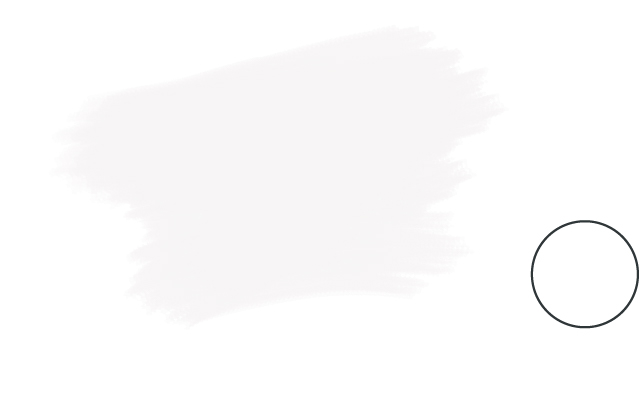
We wanted ViXion to be like the full moon, illuminating the "night" that patients see, so we expressed a moonlit night where the pitch black darkness is lit up by a yellow full moon.
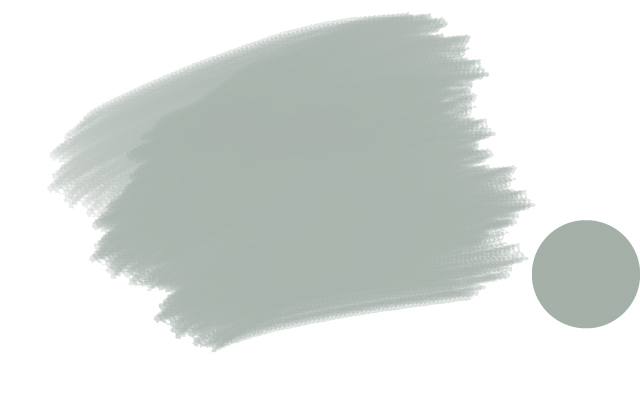
Expresses the color of a road softly lit by a full moon.
table of contents
ViXion's Future
Approximately 30% of the world's population Approximately 2.6 billion people but
I have problems with my eyesight
In a world where being able to see is the norm
It happens because it's hard to see
Facing the risks
The beginning of ViXion
Our thoughts
ViXion Inc. was established in 2021 with the mission of "expanding life choices through technology."
The origin of this lies in the existence of MW10, scotopic vision support glasses developed by an in-house venture of HOYA, a lens manufacturer.
The MW10 is a wearable device developed by Toshiharu Uchiumi (currently at CINO), a member of the development team at the time, for people with weak eyesight or night blindness caused by conditions such as retinitis pigmentosa, which makes it difficult to see in the dark.
It was developed with the aim of supplementing the vision of people with severe visual impairments and making their daily lives more comfortable.
However, the number of patients with retinitis pigmentosa in Japan is not large, approximately 23,000, and the application for subsidies for daily living aids is complicated, so there were various hurdles to the widespread distribution of device.
Nevertheless, with a strong desire to "bring this technology to those who need it," the development team spun out a portion of the business to take this technology to the next stage.
ViXion was born as a continuation of this desire and technology.
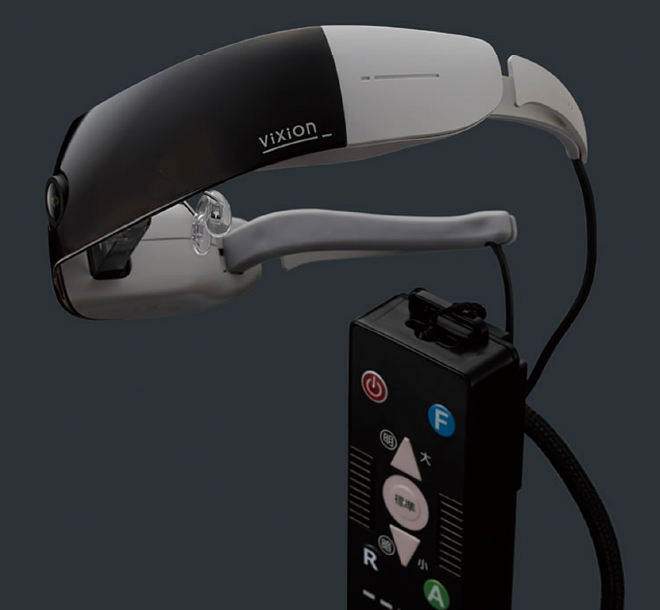
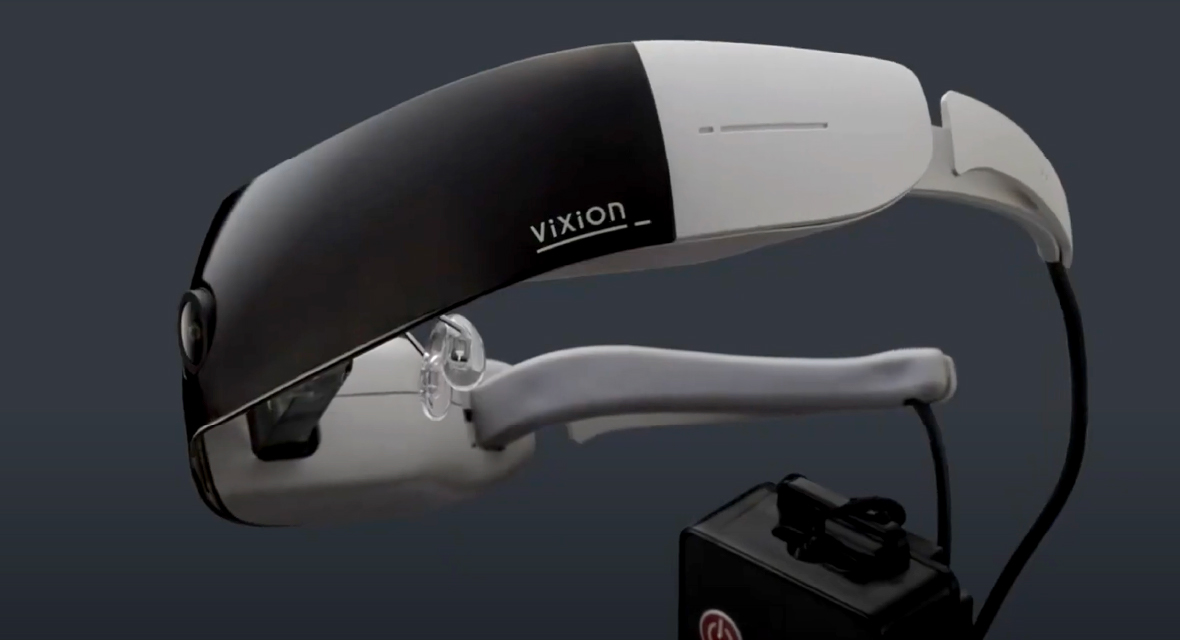
Furthermore, from feedback from users during MW10 trial sessions and other events, we realized that there are more people than we had imagined who have trouble with their "vision" due to factors other than disabilities, such as age or living environment.
This resulted in the development of the ViXion01 eyewear, which is equipped with an autofocus function that automatically adjusts the focus.
For this reason, ViXion01 was designed as a product that will be of service to people who have various everyday visual difficulties, such as those with severe visual impairments, farsightedness, difficulty adjusting focus, or visual impairment.
Although each device meets different challenges, they share a common underlying desire to "expand vision capabilities to expand life's choices."
We will continue to expand life's choices through technology and support the daily lives of each individual.
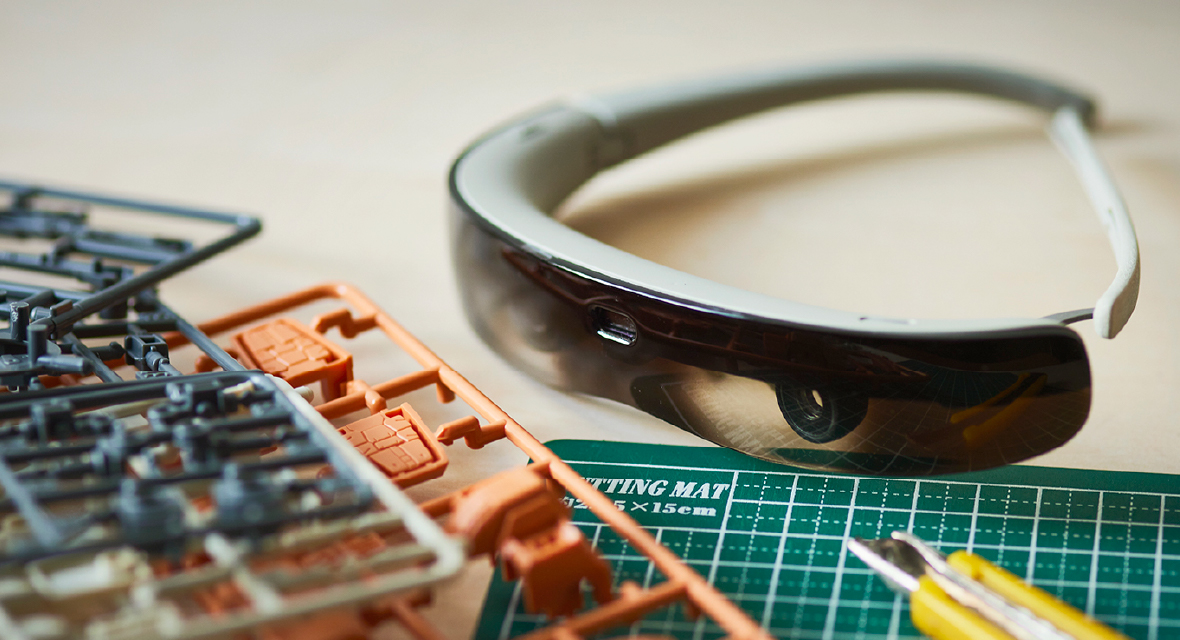
Social Issues
In a world where being able to see is the norm
Risks that occur due to invisibility
Half of the world's population is nearsighted
The "era of extreme myopia" has arrived
It is estimated that at least 2.2 billion people worldwide are blind or living with visual impairment, of which at least 1 billion have preventable or treatable visual impairments.
Myopia, which is said to have the largest number of patients in the world out of all eye diseases, is predicted to increase to 4.758 billion people by 2050, with the number of people with severe myopia reaching 938 million, and data shows that one in ten people will be at risk of going blind. This number is expected to increase due to future population growth and aging, changes in lifestyle, and other factors. *1
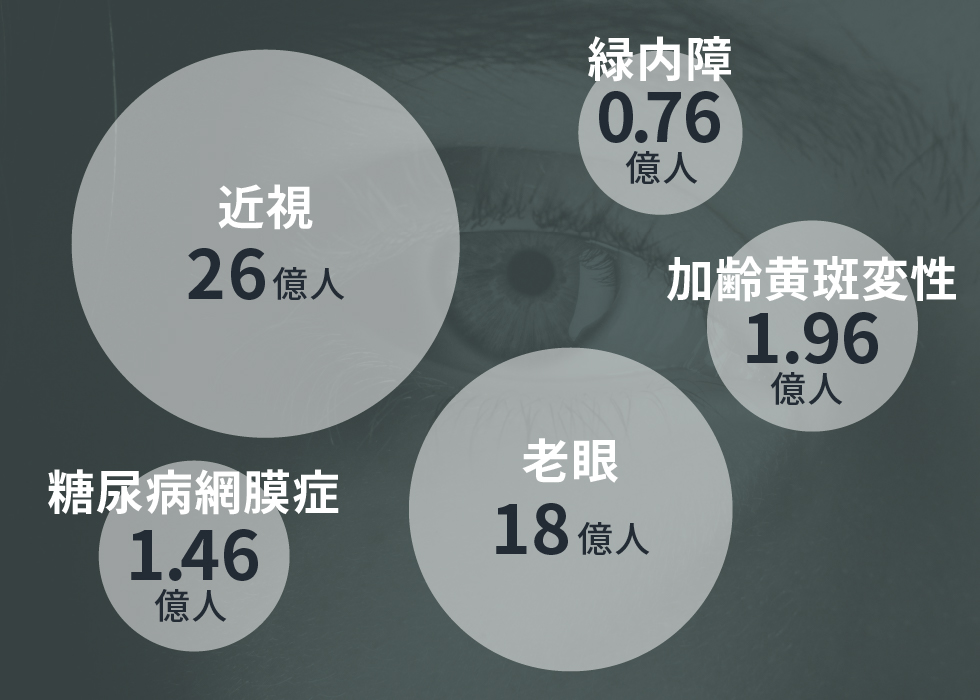
*1Source: WHO "World Report on Vision"
One in three elementary school students
The fact that his vision is less than 1.0
Myopia is also increasing among young people in Japan, with approximately 37% of elementary school students and over 60% of junior and senior high school students having uncorrected vision of less than 1.0.*2
It is said that Asians, including Japanese people, often suffer from "axial myopia," a condition in which the eyeball cannot focus for long periods of time, due to genetics and lifestyle habits. Due to the spread and prolonged use of smartphones and game consoles, as well as changes in living environments, the decline in vision among young people is noticeable, and we are now in an era where it is not just an issue for adults.
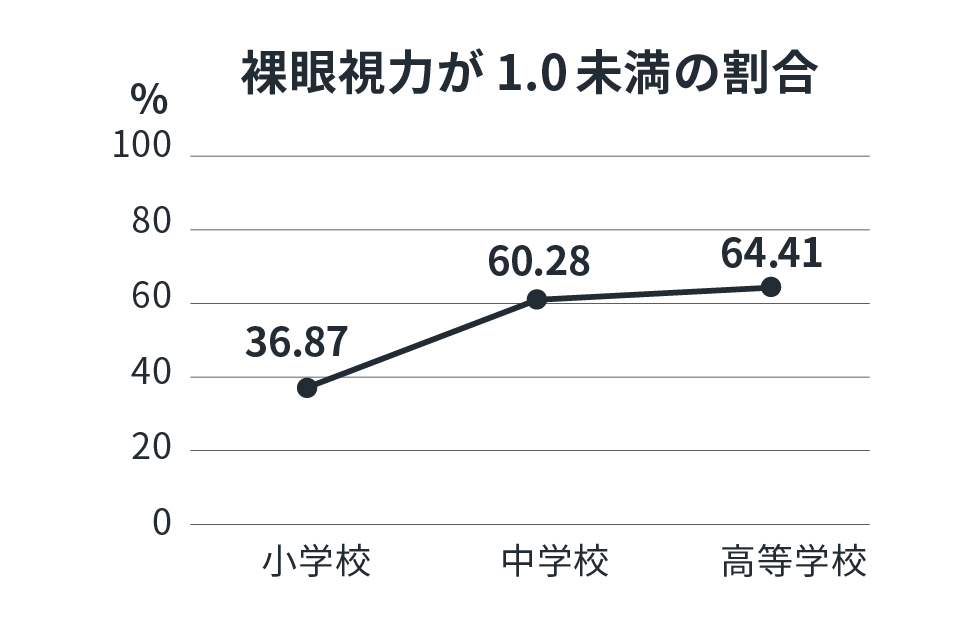
*2Source: 2021 School Health Statistics Survey
Social Background
Risks occurring in an invisible world
The increasing prevalence of vision impairment worldwide is said to result in an economic loss of approximately $410.7 billion per year. *3
There are three major risks associated with living a life with poor vision.
- 1) Having difficulty seeing and falling, resulting in a fracture.
I am bedridden due to my injury, which is interfering with my work and life. - ② When you have difficulty seeing, you feel psychologically depressed, lose motivation, have less time to travel or pursue hobbies, and your daily life scope declines.
- 3) Decreased cognitive function. Not using your eyes can cause a decline in cognitive function, and in some cases can lead to the development of dementia.
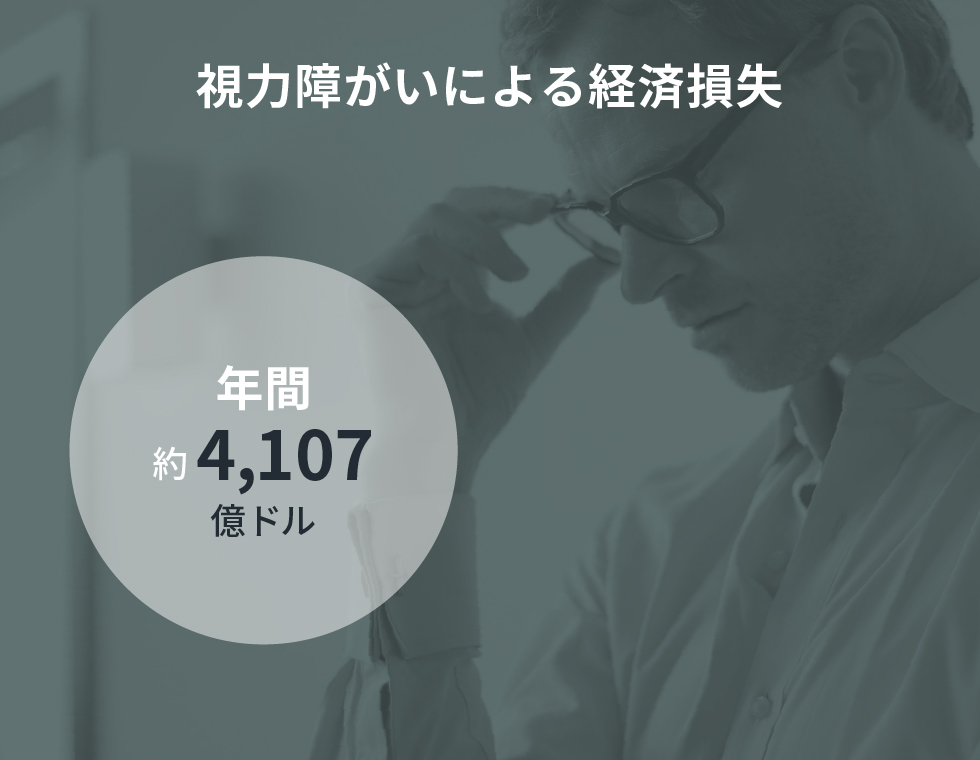
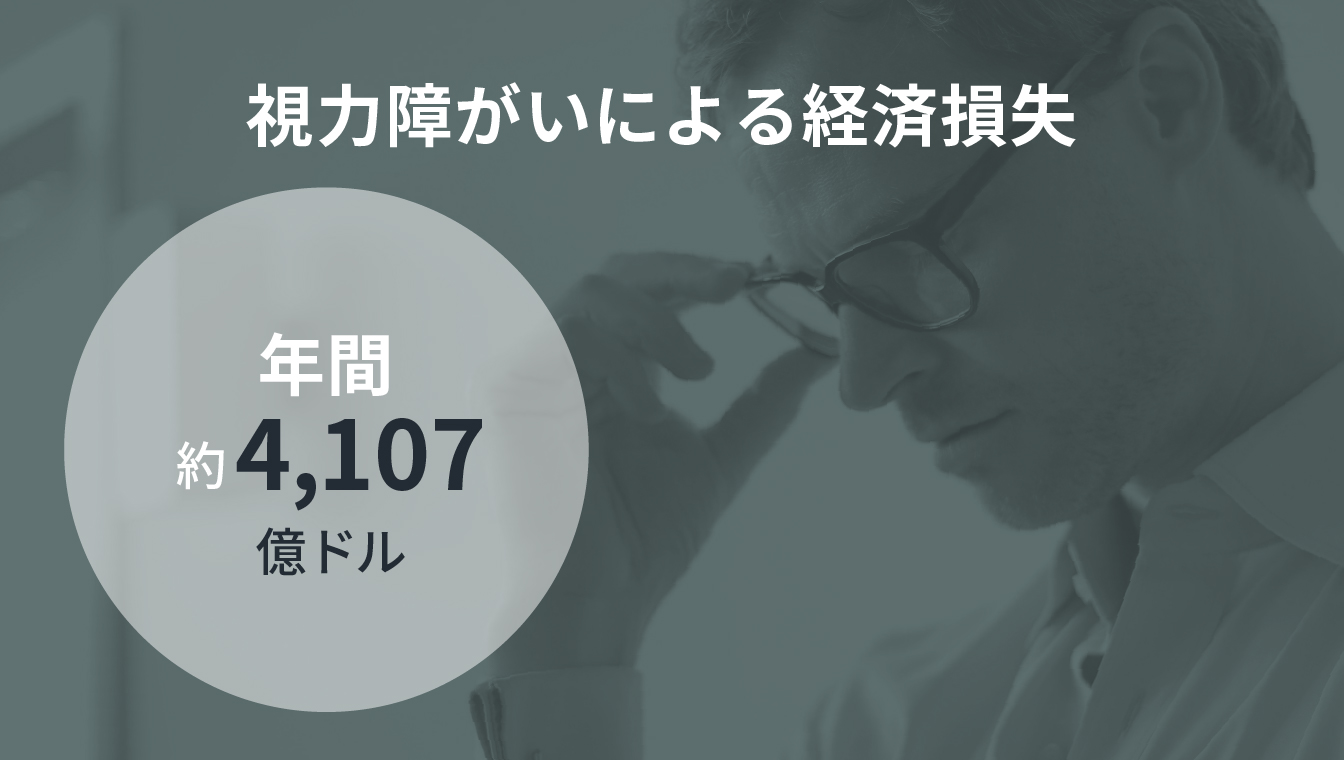
*3Source: The Lancet Global Health Commission on Global Eye Health:
vision beyond 2020
Expanding the domestic market for self-care products
As digital devices become more widespread, the number of consumers with eye problems is increasing, leading to an expansion of the domestic market for self-eye care products.
In addition to selling well, products that aim to alleviate eye strain and farsightedness have been a big hit, with the number of people with myopia increasing rapidly as smartphone ownership becomes more common at younger ages. Demand for contact lenses is also on the rise. Furthermore, the number of consumers with eye problems has increased sharply due to increased exposure to digital devices following the COVID-19 pandemic, leading to increased demand for self-eye care products. *4 A wide variety of products and services are available to cater to specific eye problems and symptoms.
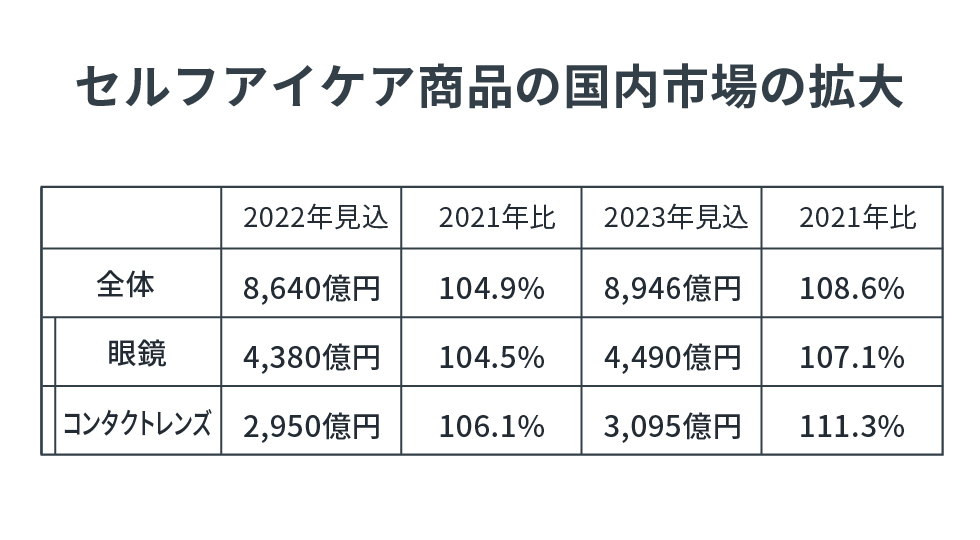
*4Source: Fuji Keizai Group
"Investigating the domestic market for self-care products"
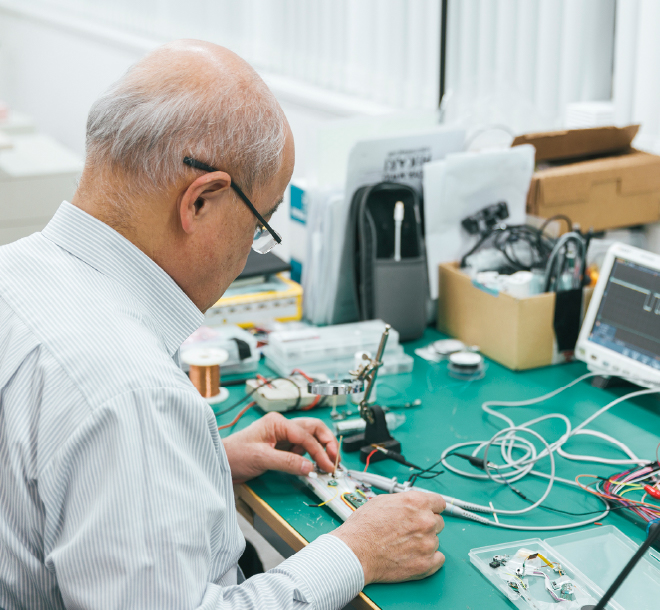
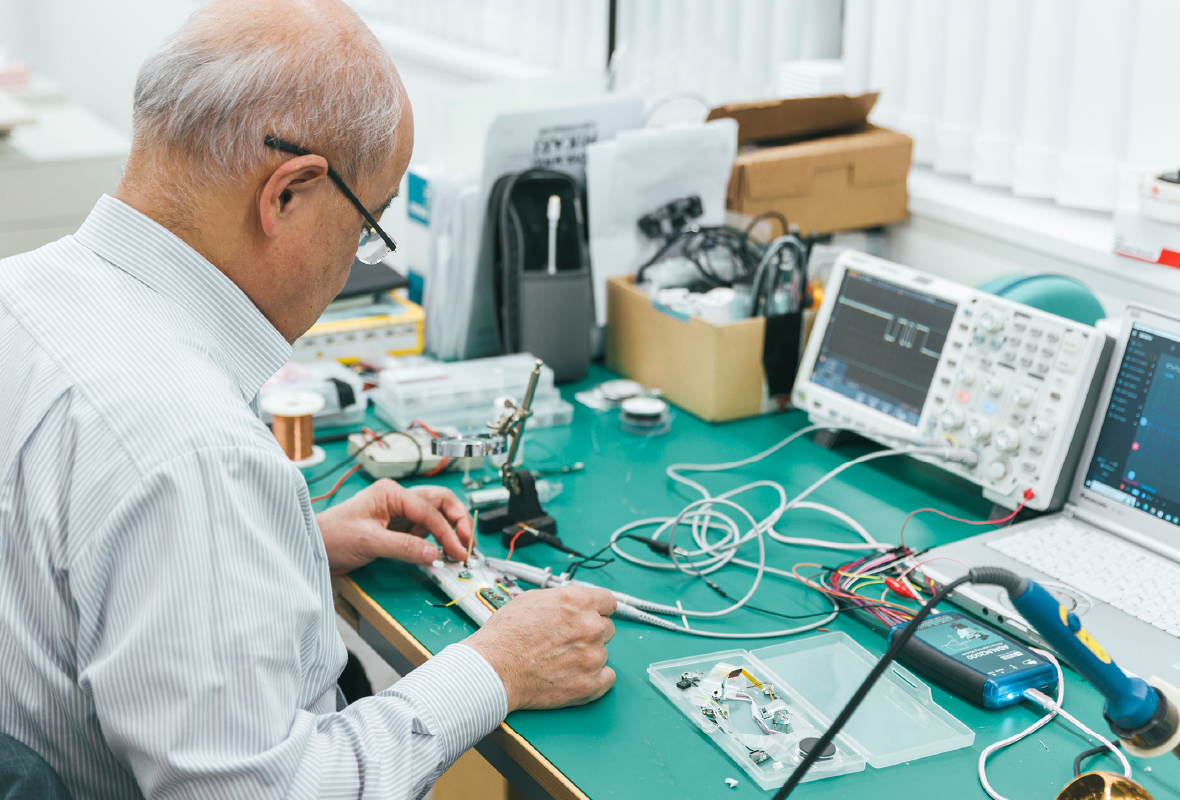
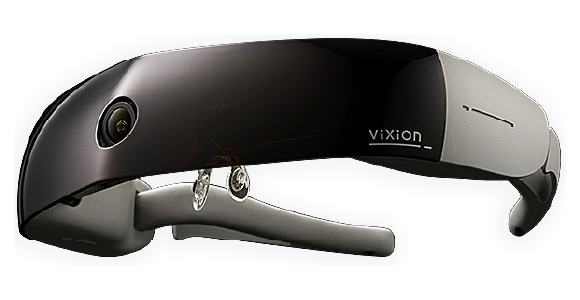
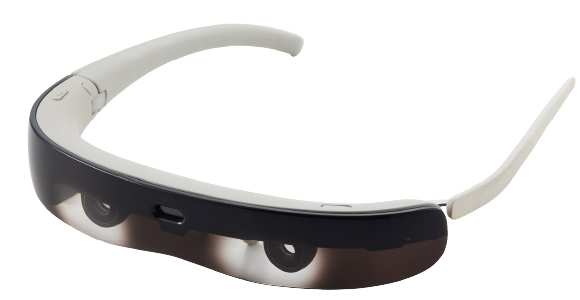
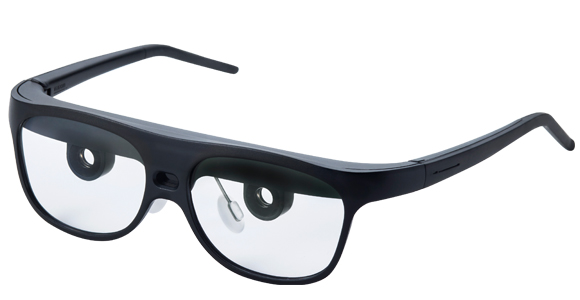


 Contact form ▶︎
Contact form ▶︎